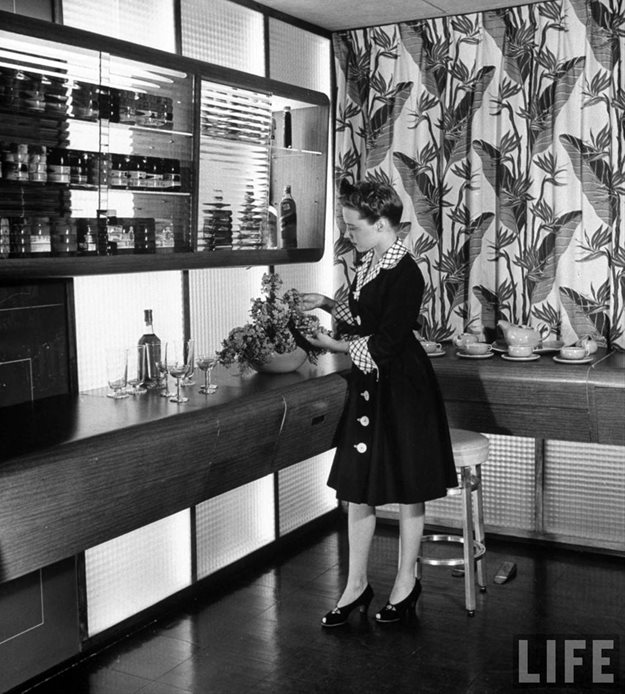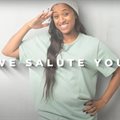Digital Agency Showcase 2020: King James
I have selected one agency for each of the two days that stood out to me and for Day 2, King James co-founder and group creative director Alistair King was a big highlight. I split my coverage of his talk into two parts. In part one, King gives us some insight into what agencies are faced with during the Covid-19 pandemic and how it's affecting creativity.
Part two covers King's comparison between Covid-19 and WWII, specifically how ad agencies dealt with the impact of the war and how it relates to current events. Let's continue:
In part 1, King mentioned that they were already starting to build Covid-related themes into their brand narratives because it feels insensitive not to.
So this made him wonder whether there was a period in history where humankind was so focused and absorbed on one subject because he wanted to see how creativity survived during that time. That lead him to World War 2 (WWII). It's the only period in history where everyone on Earth was facing the same danger/threat. Today we're facing a virus, but back then, they faced the enemy of war, no matter whose side you were on.
"I discovered some fascinating similarities to how we are dealing with Covid. Keeping in mind that film, music and advertising were all exploding in the late 30s leading up to the war. So, in many ways, these incredible parallels between our media," he said.
He shared a list of the most popular songs during WWII that was all about war.
- Don’t let’s be Beastly to the Germans
- Kiss me Goodnight Sergeant Major
- Praise the Lord and Pass the Ammunition
He said there is an incredible, diverse set of emotions in them but every single one is framed by WWII. Anecdotally, he said he wanted to share the biggest song of WWII and it was this song written by Lale Andersen:
King said this song was so huge because it was written bizarrely as a piece of propaganda for the Germans. It ended up being used as propaganda for the allies. But the lyrics were essentially as powerful and as meaningful to both opposing sets of armies and that's what it was all about. It's a fascinating song because it's really about love, separation and war.
If you look at the films of WWII, you get exactly the same scenario. Every single variation of war was in these films, from action to mystery, and some were more propaganda in nature. But what he discovered by looking at film and music and eventually advertising during WWII is that we always tend to go through the same phases when we're handling a crisis.
Stage 1: Keep calm, make jokes
With both WWII and now with Covid, if you remember what it was like right at the beginning when we started realising that this coronavirus existed, we were quite relaxed about it. In fact, we were quite rude about it. We made fun of the fact that we were safe and it was far away. This was really consistent with WWII. It was jokey. It was quite racist in many ways against the Japanese and the Germans, but communication in advertising was all fun.
Stage 2: Sh!t just got real
Do you remember those emotions when suddenly the first few cases were reported in South Africa? King said there was a slight pull-back. People realised maybe this isn't such a joke, and it became a little bit more serious.The same happened once again during WWII when you look at the posters and how advertising agencies were trying to insert their brands into the conversation.
Communication started to change because suddenly it was becoming more real and it started to become a little bit more anxiety-filled.
Stage 3: Alert, alert, to your battle stations!
King said communication has taken on this tone very much. "If you think about coronavirus, we took this on very, very fast. 'This is what we need to do. This is how we can beat it.' Communication is very, very educational in nature, very informative and very action-orientated."
He said ironically there was also a fund drawn up in WWII. It was essentially drawn up to finance the war effort and lots of encouragement was used. "'Let's build. We need money. Rationing,' and these are very familiar themes to what we've been going through, funny enough, and war bonds, in particular, was essentially how they financed the war. They said, 'Buy war bonds.' It was more than an investment than a donation. Today, our Solidarity Fund is much more of a humanitarian appeal, but it's giving people a way to contribute to the war efforts or the battle against Covid," said King.
Brands also announced, back then, that they were contributing to the war efforts. Sometimes realistically and sometimes just in spirit. He explained that the link between some brands and the war effort was really pretty tenuous but that didn't stop them. In fact, King said he found a reference from a lecturer in the US, and the lecturer referred to something called brag ads in WWII. Brag ads were identified as ads where the main intent focused more on promoting the merits of a corporation, product or service than on encouraging patriotism or support of the war efforts.
King said that he knows many ad agencies have had these conversations with their clients saying, 'Surely Covid-19 is not a marketing opportunity?' He said that he knows all of the agencies have been going through the same thing but back then in WWII some of these ads were quite tenuous, to say the least.
He used examples like Chesterfield who he said tried to convince people during WWII that they had more breath to blow a whistle than the motor industry was really punting its role in tanks.
"I thought that was really interesting because agencies back then were clearly as conflicted with how they present their clients and brands as we are now. Basically, it's also when we start to acknowledge the heroes amongst us. This is an interesting quote about the fact that brands back then were battling to promote themselves while simultaneously promoting the right ethics towards the war and the right attitude."
He said Stage 3 was also where we start acknowledging the heroes amongst us. "People who are essentially putting their lives at risk. And we are in that phase right now, where we are thanking the people at the front line and not just the medical but also the people working in the shops every day. And everyone is playing a role. No doubt more and more people are going to come to the party. More and more people will be our heroes."
He explained that this is a universal human reaction to any situation. But what is also interesting is that many brands simply became unavailable during the war. They were taken off the shelves or made unavailable because they weren't regarded as essential to the war efforts. "That's exactly the same narrative I find in Covid. That didn't necessarily stop advertisers from advertising. Many brands continue to advertise for this reason," he said.
King said he thought this might be useful to advertisers and marketers, if you are facing a client that says, "Well I'm or my brand's pulling my advertising and we will push it again when we get back online." He said that this is an interesting perspective and that:
You should never really stop advertising because when you do come back, consumers are going to mute your name.While these first three phases happened in a matter of years, playing out relatively slow motion, our experience with Covid has been condensed like it's on steroids. Because Stage 4 already feels like it's come through its own narratives to date.
Stage 4 is; a better world awaits us all
King said that we need to start making people think about what's ahead of us. "I suppose in WWII you had to talk about the future because soldiers would have nothing to fight for. There's nothing like hope for a better tomorrow to help you get through all this, and I suppose it's easier to start feeling overwhelmed by our circumstances. So it is perfectly natural to start follow-up messages of hope and optimism. A lot of our advertising today is trying to do this," he said.
He continued and said that we might have noticed a lot of advertising talk about Covid recalibrating us and helping us reassess what is important to us, helping us recover from the environmental damage that we've done.
He added: "We are already shifting our narrative away from it uniquely stressing us and I stumbled upon this remarkable piece of work from 1943 and it really blew my mind in so many ways. Because it illustrated to me how brands can wiggle out of this very oppressive context that we have right now. It gave me a clue that in fact, it is possible to talk about how to be sensitive to our environments and our circumstances but not make it relative to Covid."
'Kitchens of the Future'
According to King, this is considered the best piece of work during the war effort. It is from a brand called, Libbey-Owens-Ford. Libbey-Owens-Ford is a glass company and they created this campaign called, 'Kitchens of the Future'. King said he thought it was very interesting because for once, they didn't talk about the war. They changed the subject completely. The subject became the future, after the war, the great things we have to look forward to.

This gave valuable respite from the anxiety of war. It was larger than life, spectacular and it was virtually the stuff of science-fiction. King said: "I cannot underestimate how huge this campaign was. It absolutely grabbed millions of people's imaginations. People who were so exhausted and so saturated with anxiety about the war and about messages about the war. This thing completely opened up and almost went back to the days when people didn't have to think about the war, for a brief moment."
He said what really blew his mind about this campaign, was that they essentially built three kitchens in the homes of the execs, and they built it using award-winning interior designers and it was featured in all sorts of architectural and lifestyle magazines as both editorial and advertorial. So, it started off as a piece of print material.
Then they got Paramount to come and shoot the film. King said Paramount then made three different films and they started to run them all over the country. This caused so much excitement and the PR was immense and that gained massive earned media. It was discussed in other magazines, it was discussed on the radio at length. It really gripped people's imaginations.
They also took those kitchens on tour around the country. "It became an installation of sorts and millions and millions of people flocked to see these installations. I regard this as one of the first integrated campaigns I ever encountered, and the only thing missing was social media and digital, and even that was substituted by good old fashioned word of mouth because people came in their millions to see it," King said.
When we talk about integration today, we talk about it as if it's some kind of brand new invention, and King said he thought that to be quite funny, now that he's seen this because integration and integrated communication is as old as the industry itself.
This is the same idea copied by GM:
Creative explosion
King said that he thought it was really reassuring to see that in history we've got something we could learn. He said he thinks we are not going through a unique experience in that regard.
It's reassuring to see that humanity tends to go through the same patterns of communications. It certainly feels to me that we can learn a lot from how we've stopped communicating with people now.He said what he is excited about is that when Covid passes there is going to be an absolute creative explosion and warned that we'll have to get to work very fast because we're going to be dealing with so much excitement, so much anticipation and we're going to work harder with the money that we're given.
King said he hopes that we forgive him for not coming and showing King James' work and talking about how they made it. "I felt that I was never going to have an opportunity to talk about stuff that is so powerful and the circumstances that we are in right now."
He left us with some final words:
"Hang in there. Think hard. Do some cool stuff. Try to get through this well and take care of yourselves."
About Juanita Pienaar
- #Newsmaker: Producer Eddie Chitate launches Africa's newest streaming platform - 4 Nov 2020
- #2020AfricaBrandSummit: The role of PR and communication during crisis - 14 Oct 2020
- #IABInsightSeries: Marketing partnerships in the digital economy - 12 Oct 2020
- #DoBizZA: Just Brands Africa gives back to SA by helping educate future leaders - 30 Sep 2020
- #Newsmaker: Deshnie Govender launches new podcast - 25 Sep 2020
View my profile and articles...


